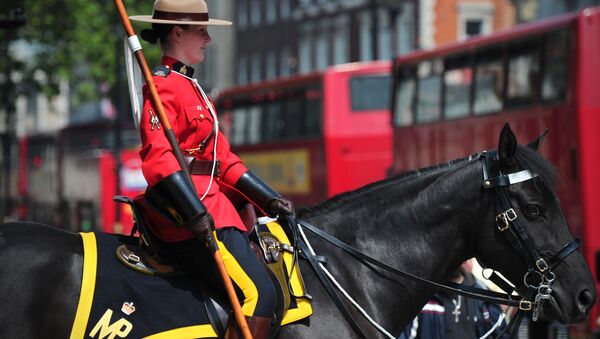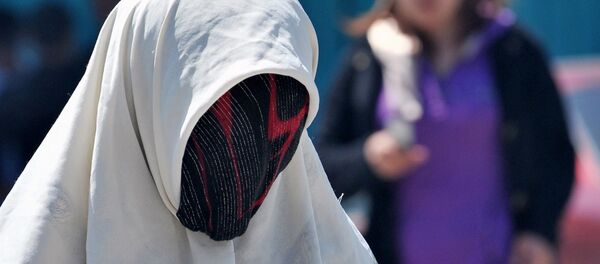Turkey's female police officers will now "be able to cover their heads" under their caps or berets. The headscarf must be "the same color as the uniform and without pattern."
While previous secular governments in Turkey banned the wearing of a religious headscarf at universities and in the civil service, in recent years the ruling Justice and Development Party (AKP) has lifted bans on wearing the headscarf at schools and universities.
Ankara's police ruling comes after police forces in Canada and Scotland announced last week that Muslim women serving as police officers will now officially be able to wear a hijab, a headscarf which covers the head and neck, as part of their uniform.
"The commissioner of the Royal Canadian Mounted Police (RCMP) recently approved this addition to the uniform," a spokesman for Canada's Public Safety Minister Ralph Goodale confirmed last week.
"This is intended to reflect the diversity in our communities better and encourage more Muslim women to consider the Royal Canadian Mounted Police as a career option," he explained.
The hijab is now an optional part of Police Scotland uniform. More at https://t.co/IeOAJGsORZ #PolScotRecruit 1/2
— Police Scotland (@policescotland) 23 августа 2016 г.
"Officers and staff have always had the option to wear religious headwear," Police Scotland announced on Tuesday.
"Today's announcement formally ratifies the Police Scotland hijab and will encourage women from Muslim communities, who may previously not have seen policing as a career option, to reconsider."
The decision by Scottish police comes more than a decade after London's Metropolitan Police approved the hijab as part of its uniform, as part of a drive to increase recruitment from ethnic minorities.
While the authorities in Canada and Scotland have given official approval for Islamic dress, some European countries are debating bans on burkas and niqabs, which are full-face veils, and burkinis, a swimsuit which covers the whole body.
The burkini was invented by Australian-Lebanese designer Aheda Zanetti, who told Australia's New.au.com last week that she has shipped 700,000 burkinis worldwide.
"This is a swim suit that represents freedom and sun and surf and happiness and swimming and leisure, family, happiness," Zanetti said.
France had already introduced a ban on the burka in 2010, and neighboring Belgium followed suit in 2011. Some regions of Switzerland and Italy have also banned the full-face veil, and German politicians from Angela Merkel's Christian Democratic Union recently proposed a partial ban on burkas.




